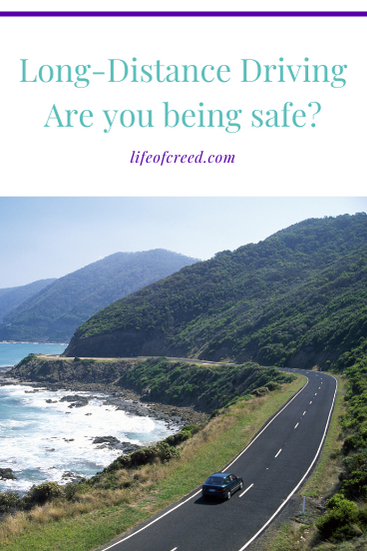If you drive multiple times a week, for varying distances, it is essential to know that long-distance driving presents some challenges. The concentration that long-distance driving takes can be much more than you think – and certainly not what you are used to.
Long-distance driving has become more of a lifestyle, with van life, road trips, and skipping the airport in favor of driving to specific locations.
So before you head out on a long-distance drive, here are a few things that you need to keep in mind to keep you and other road users safe.

What is highway hypnosis?
Highway hypnosis, which can also be called white line fever, is an altered driving state. It happens when drivers go for extended lengths of time, and it can also feel like autopilot. Once the driver arrives at the destination, they will have little to no recollection of the drive itself.
It has been theorized that it is a dissociation state and can be just as dangerous as driving drunk or under the influence of mind-altering substances. It makes it more difficult for the driver to snap back and take action is required and can be linked to many car accidents.
Even if you don’t slip into highway hypnosis, other drivers will not, so vigilance on long drives is essential. If accidents do occur that you are not the cause of, always talk to a personal injury attorney.
To avoid highway hypnosis or driving dangerously, here are some things to keep in mind.
Hydrate
At home, if you forget to drink water all day, you won’t have too many issues. Perhaps a mild headache and some slight tiredness. A long drive makes you much more likely to be dehydrated to dangerous levels without notice.
We often consider driving as a low-energy thing because we aren’t moving. However, many people skip drinking enough water because they don’t want to make too many rest stops.
Before going on a long drive, you should ensure hydrated and keep sipping water throughout the journey.
Rest
In the preparations you make in the run-up to the drive, you should also ensure that you are sleeping well enough. If you have driving anxiety, this can be difficult, so instead, you can spend time resting.
Driving while tired is much the same as driving while you are drunk. Your reactions are slower than usual, as well as risking falling asleep at the wheel.
No matter what time of day that you are supposed to leave, do not leave if you are tired at all.
Plan regular stops along the long drive so that you can stretch your legs, or check into a hotel, motel or sleep if you need to.
Always be flexible when you need to drive long distances to account for being tired or needing extra breaks.
Passengers
The passengers you have in the car will make a big difference to how awake you feel at any given time. The right passenger will hand you snacks, water, coffee, change the music, and keep you updated on any upcoming traffic or route changes.
Try to have a passenger that can also take over from driving should you need it.
Long trips may be an absolute blast since you get to see a lot of the land you’re passing through. However, to do it safely, you must be rested and well-prepared in terms of refreshments, passengers, water, music, and, of course, having your car serviced before leaving.
Perhaps your driving presents other challenges; if so, read this: 4 Driving Safety Tips for Those Suffering from Hearing Loss.
About the Author
Contributing Author
This article is written by a contributing author.
If you found this post useful, please Pin It!

Hi, before you go…
Don’t forget to join the email list!
Don’t forget to join in on the conversation on social media.![]()
![]()
![]()
![]()
![]()

